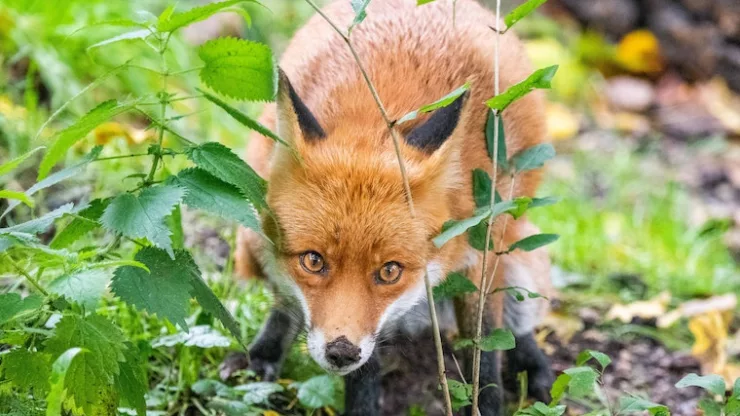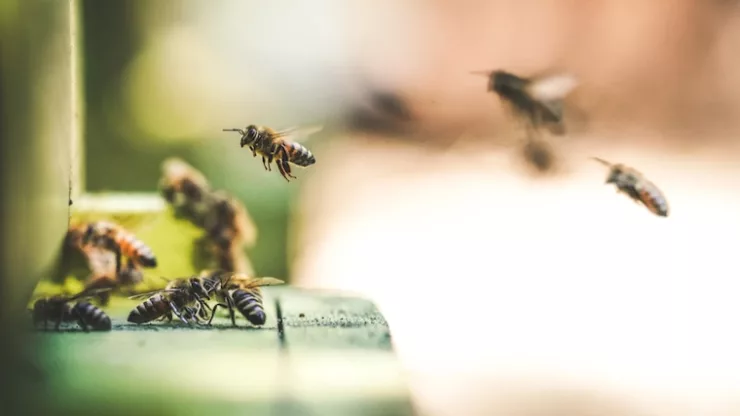Skunks are notorious for their pungent odor, but did you know that they are also picky eaters?
Urban skunks have adapted to living in cities and suburbs, and their diet has changed as well.
In this article, we will explore the food preferences of urban skunks and how their diet impacts the ecosystem.
Jump to Section
Introduction
Skunks are native to North America and are known for their distinctive black and white stripes and potent smell.
They are found in a variety of habitats, including forests, grasslands, and urban areas.
In urban environments, skunks have adjusted their behavior and diet to survive.
The prevalence of urban skunks
Urban skunks are becoming more common in cities and suburbs. As humans continue to encroach on wildlife habitats, skunks are adapting to living in urban environments.
They are attracted to the abundance of food and shelter provided by human settlements.
The diet of urban skunks
Omnivorous tendencies
Skunks are omnivores, which means they eat both plant and animal matter. Their diet can vary depending on the season and availability of food sources.
In urban environments, skunks have access to a wide range of food options.
Food preferences
Despite their omnivorous tendencies, urban skunks have developed specific food preferences. They are picky eaters and will often turn up their noses at certain foods.
Some of their favorite foods include:
- Insects: Skunks love to eat insects, including beetles, grubs, and worms.
- Fruit: Skunks have a sweet tooth and will eat fruit when it is available.
- Nuts: Skunks will eat nuts, such as acorns and walnuts.
- Meat: Skunks will eat meat, including small mammals, birds, and eggs.
Commonly scavenged items
In addition to their preferred foods, urban skunks will scavenge for food in garbage cans and compost piles.
They are attracted to food waste and will eat almost anything they can find, including:
- Leftover pet food
- Human food waste
- Rotting fruits and vegetables
- Carcasses of small animals
Factors affecting food choices
Availability of food sources
The availability of food sources plays a significant role in skunk diet.
In urban environments, skunks have access to a variety of foods, including human food waste and pet food.
However, the availability of these food sources can vary depending on the season and location.
Seasonal changes in diet
Skunks’ diet can change depending on the season. In the spring and summer, skunks will eat more insects and fruit.
In the fall and winter, they will eat more nuts and meat. The availability of food sources can also change depending on the season.
Impact of human interaction
Human interaction can also affect skunk diet. Skunks may be attracted to human food waste, pet food, and garbage cans.
They may also be impacted by human development, such as the destruction of habitats and the introduction of new food sources.
The impact of skunk diet on urban ecosystems
Eating habits and behavior
Skunks’ eating habits and behavior can impact urban ecosystems.
For example, their love of insects can help control pest populations, but their scavenging behavior can also spread disease and attract other wildlife.
Ecological effects of food choices
Skunks’ food choices can also impact the ecosystem. For example, their consumption of fruit can spread seeds and help with plant reproduction.
However, their consumption of small mammals and birds can impact those populations.
Managing urban skunk populations
Prevention of wildlife interactions
To manage urban skunk populations, it is important to prevent wildlife interactions. This includes securing garbage cans and compost piles, and not leaving pet food outside.
It is also important to avoid attracting skunks by removing potential food sources.
Human intervention in skunk diet
Human intervention in skunk diet can also be effective.
For example, planting fruit trees and providing bird feeders can help provide alternative food sources for skunks.
However, it is important to balance the impact on the ecosystem with human needs.
Balancing environmental impact with human needs
Balancing the environmental impact of skunk diet with human needs can be challenging.
It is important to consider the impact of human activities on skunk populations and the ecosystem.
This includes the impact of urban development, as well as the impact of human behavior on skunk diet.
Conclusion: Skunks Are Picky Eaters
Urban skunks have adapted to living in cities and suburbs, and their diet has changed as well. Skunks are picky eaters and have developed specific food preferences.
Their eating habits and behavior can impact the ecosystem, and it is important to manage skunk populations and their diet.
FAQ
What do skunks eat?
Skunks are omnivores and eat both plant and animal matter. Their diet can vary depending on the season and availability of food sources.
Some of their favorite foods include insects, fruit, nuts, and meat.
Are skunks attracted to human food waste?
Yes, skunks are attracted to human food waste, including pet food and garbage cans. It is important to secure these food sources to prevent attracting skunks.
How can I manage skunk populations?
To manage skunk populations, it is important to prevent wildlife interactions and remove potential food sources.
Human intervention in skunk diet, such as providing alternative food sources, can also be effective.
However, it is important to balance the impact on the ecosystem with human needs.
I’m a nature enthusiast and creator of Metro Wilds and have spent years exploring the great outdoors.
With a passion for environmental conservation and sustainability, I have dedicated my career to writing about the beauty and wonders of nature, as well as the threats facing our planet.
Contact me at [email protected] for assistance.





